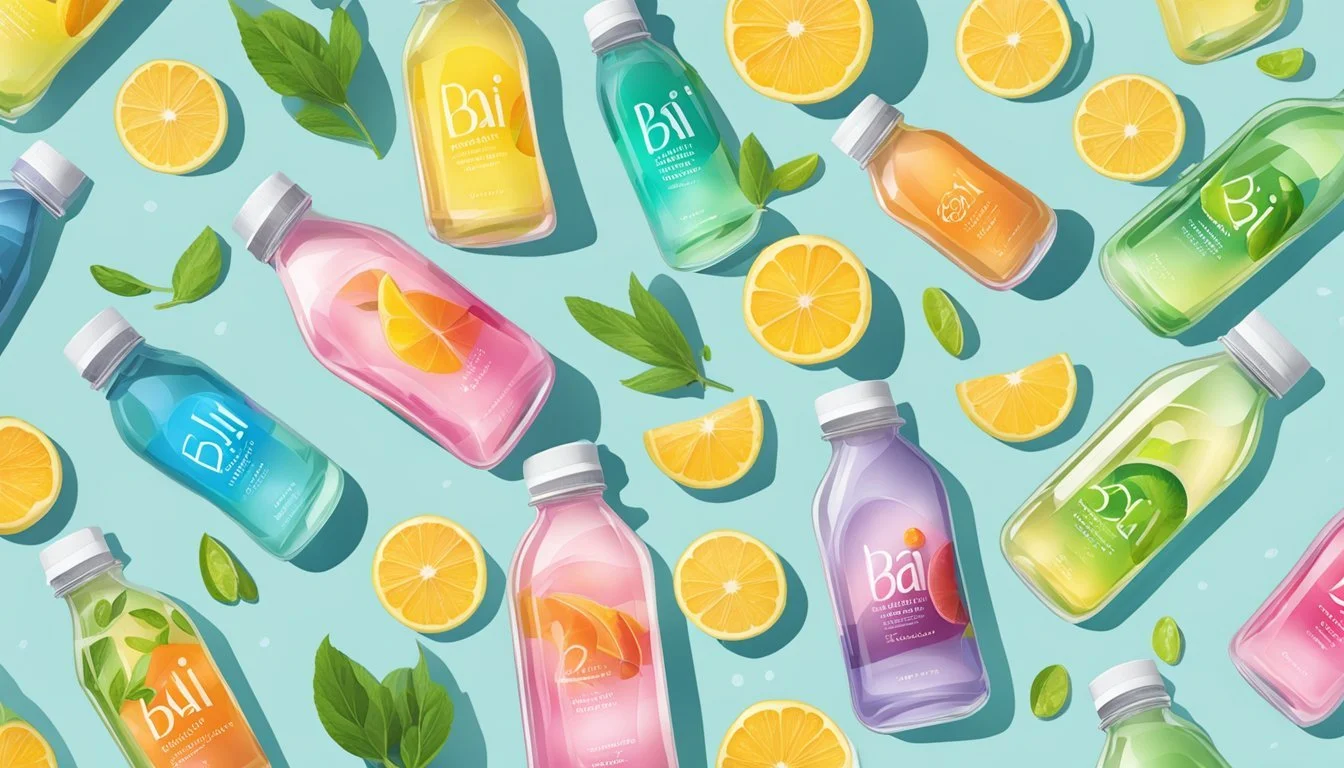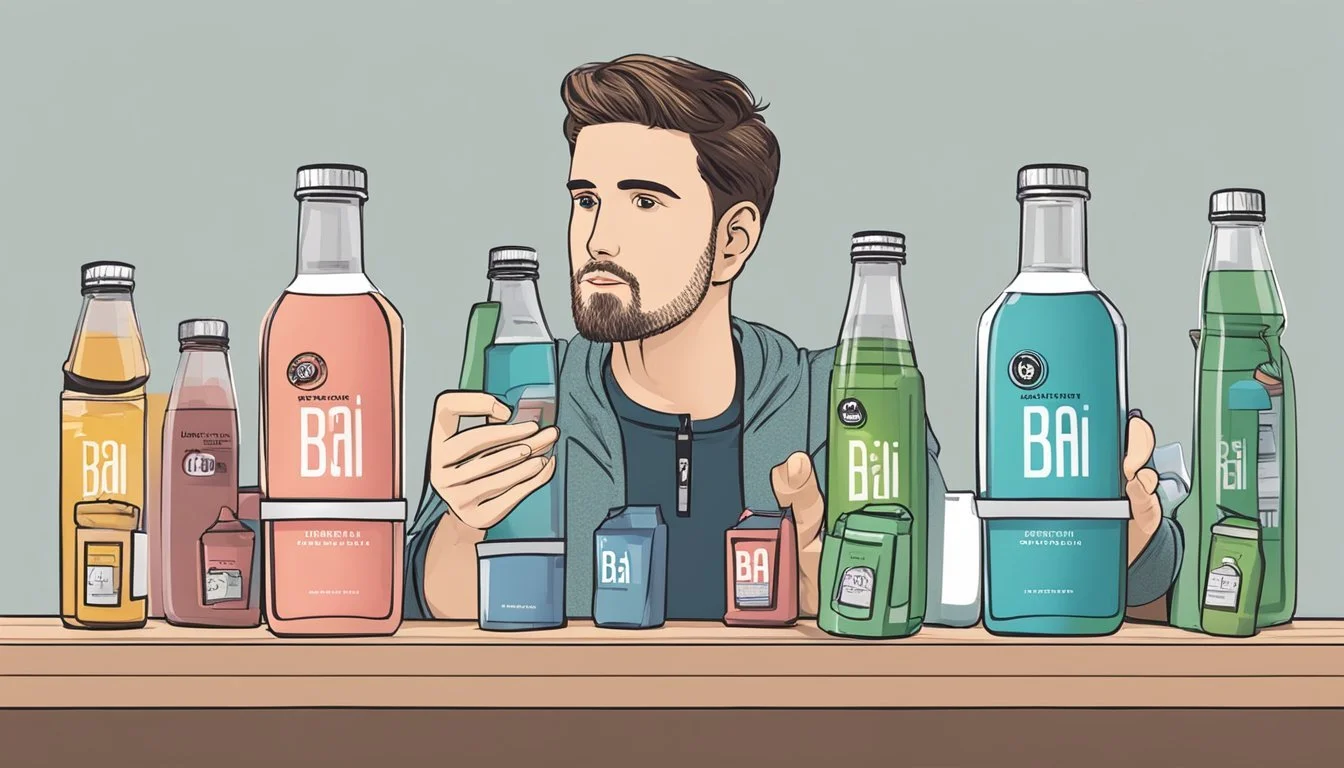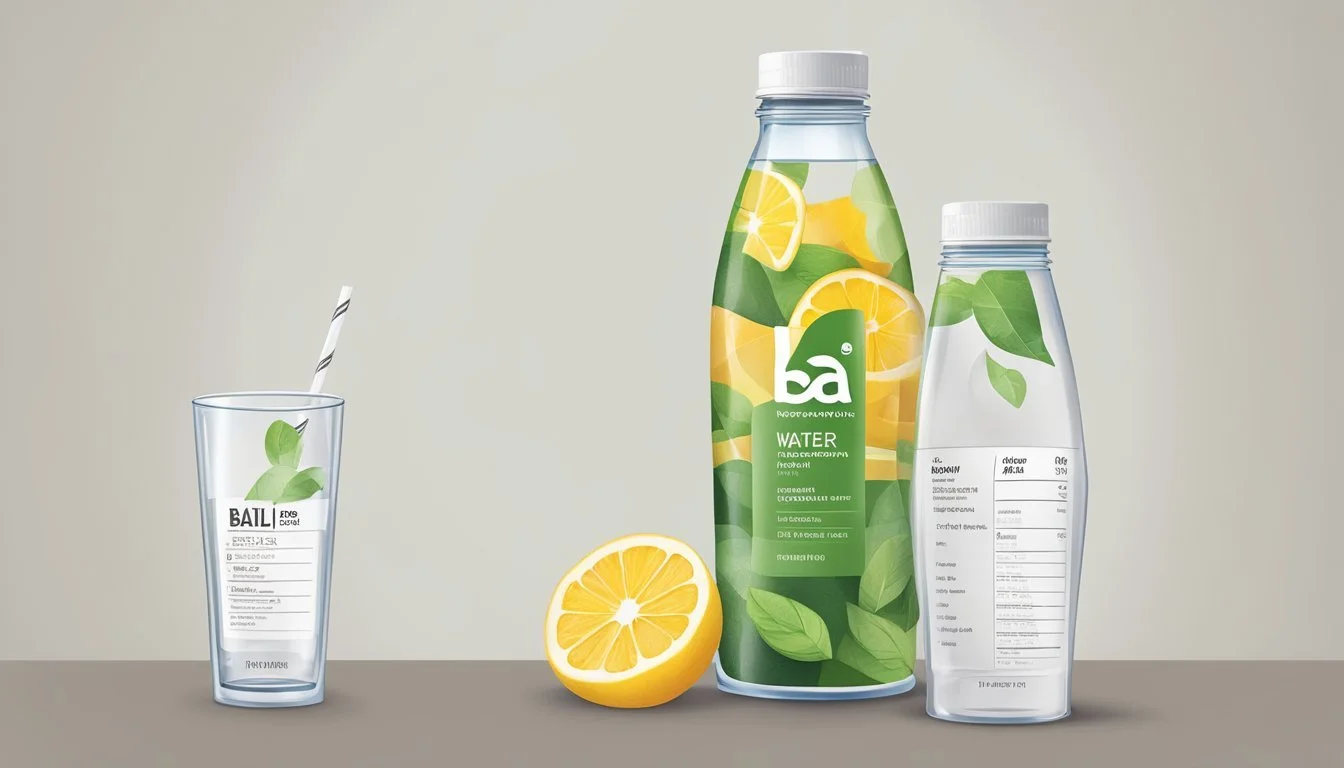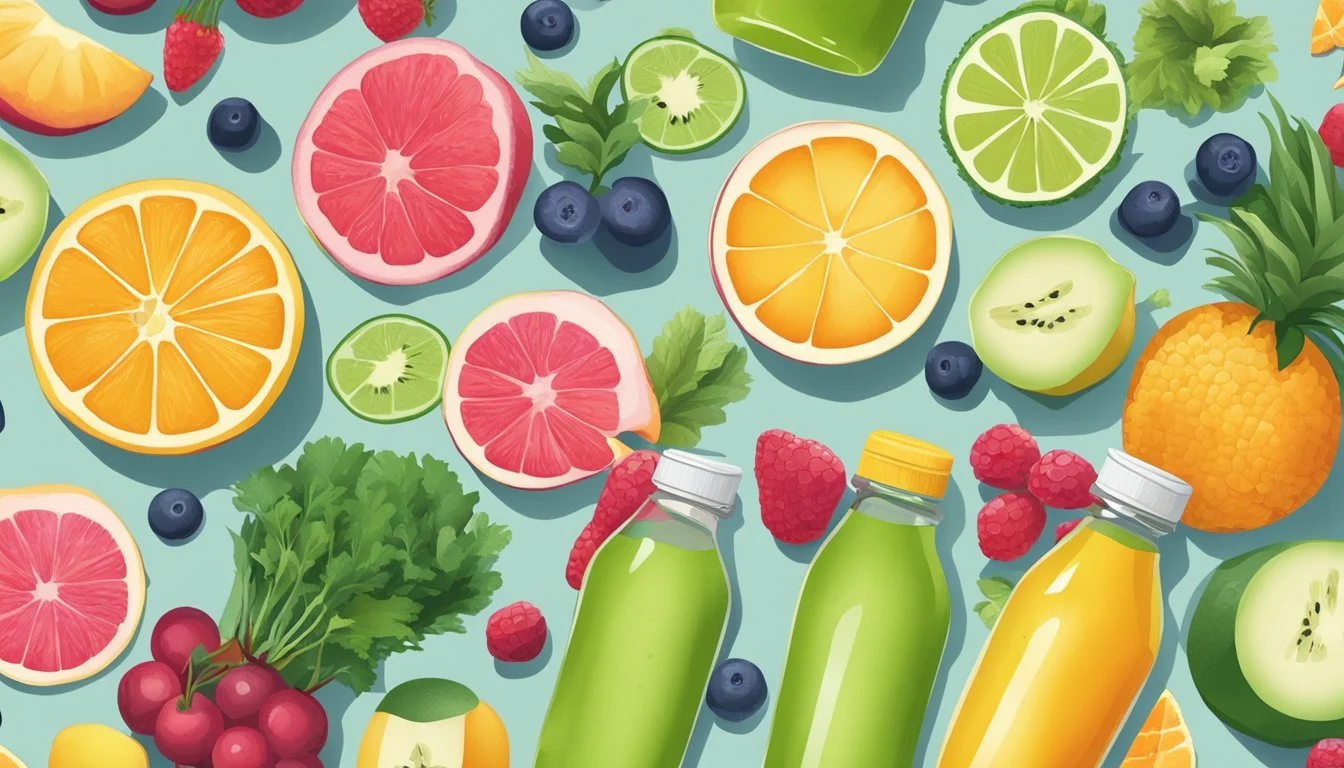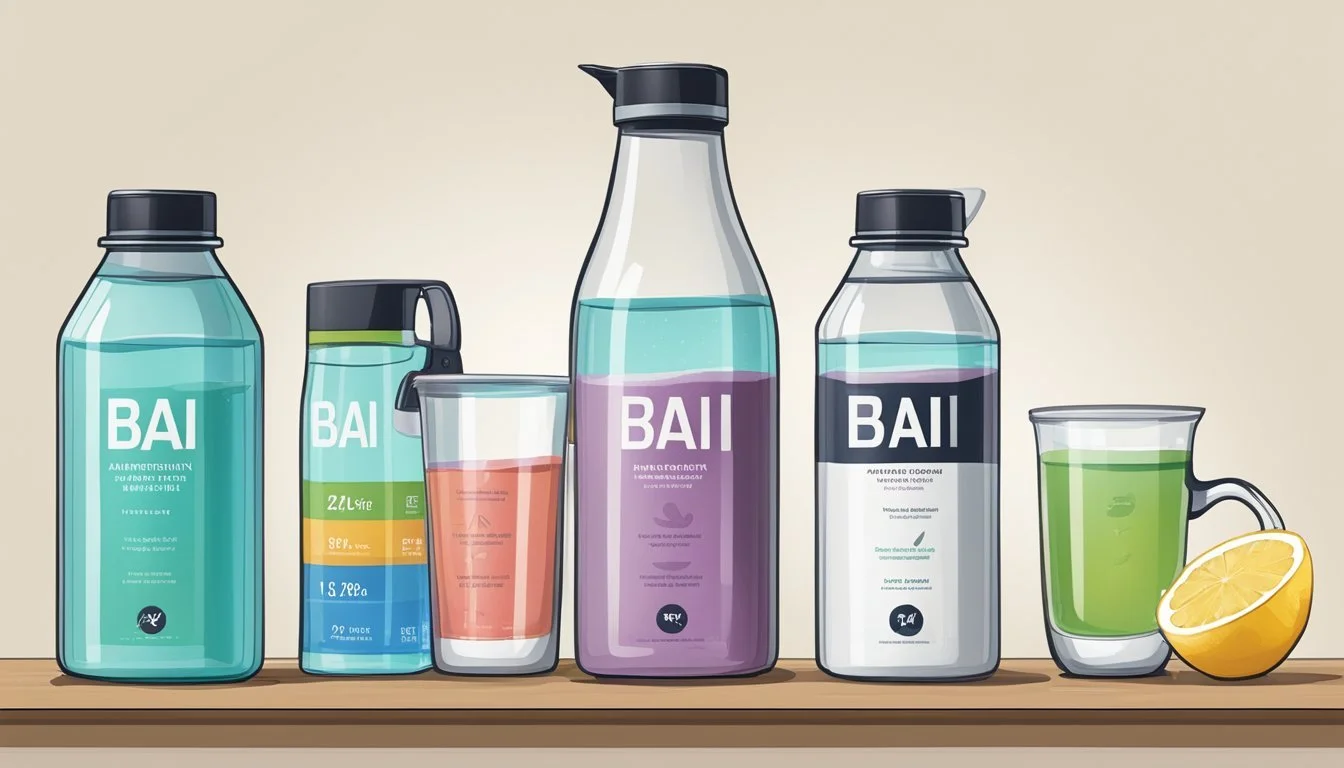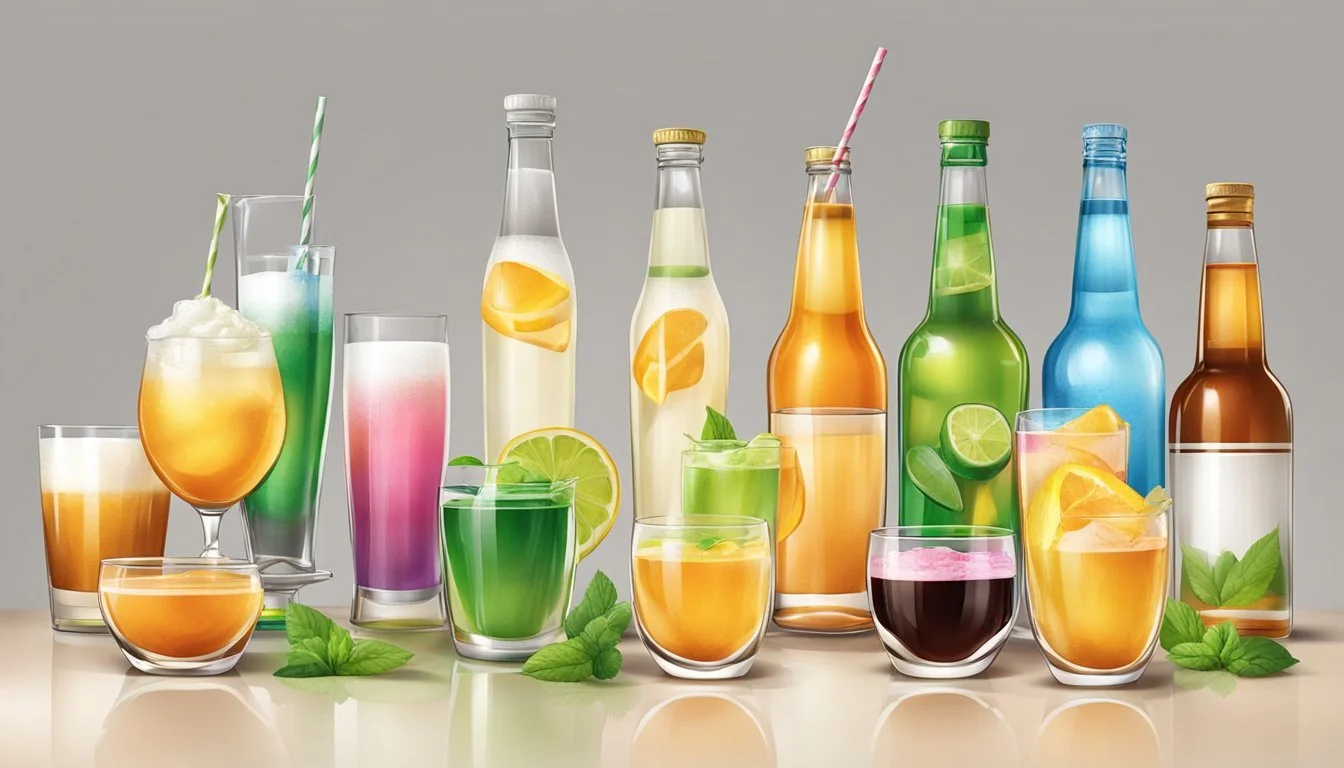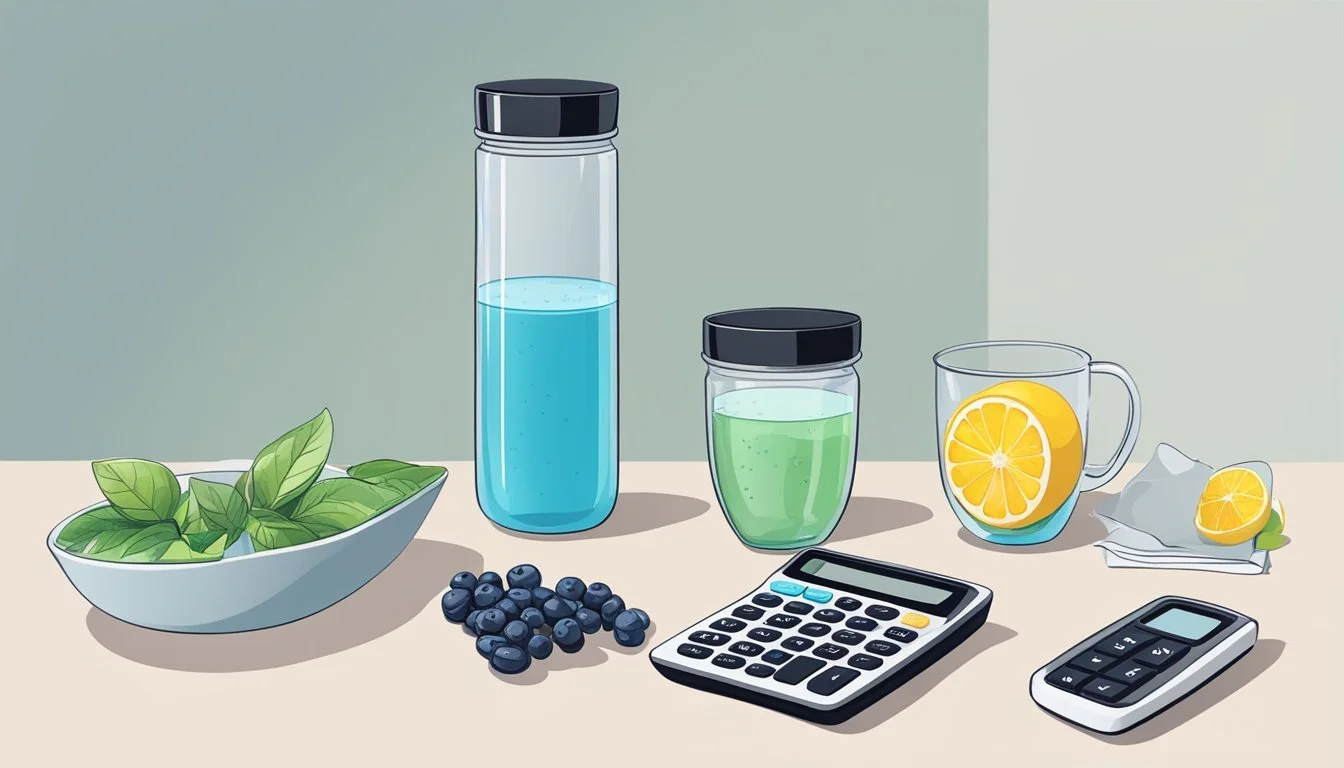How Many Servings of Bai Antioxidant Infused Water Is Too Much
Expert Guidelines
Bai Antioxidant Infused Water has grown in popularity as a health-conscious drink option, thanks to its low calorie count, natural sweeteners, and antioxidant properties. Many enjoy its variety of flavors and the energy boost from its modest caffeine content. Most nutritionists agree that consuming more than three bottles per day may lead to excessive caffeine intake and potential digestive issues due to sugar alcohols like erythritol in the drink.
Despite its benefits, moderation is key. Drinking too much Bai can lead to unwanted side effects such as disrupted sleep patterns and digestive discomfort. Each bottle typically contains around 55mg of caffeine, and the Boost variety contains double that amount, which can add up quickly.
Health enthusiasts should be aware that while Bai does offer a healthy alternative to high-calorie, sugar-laden drinks, it is not without its limits. Balancing Bai with other hydrating and nutritious options in a daily diet can help maintain overall health and well-being.
Understanding Bai Antioxidant Infusion Drinks
Bai Antioxidant Infusion Drinks are marketed as a healthy alternative to sugary beverages. These drinks highlight the benefits of antioxidants derived from a blend of coffee fruit, green tea, and white tea extracts.
Each bottle contains a minimal amount of calories and sugar, making it a popular choice for those looking to reduce their intake of high-calorie drinks. Specifically, a 16-ounce bottle of Bai typically contains around ten calories and just 2 grams of sugar.
The beverages also include natural flavors and fruit juice concentrates such as watermelon juice, which has been associated with cognitive benefits. Stevia, a natural sweetener, is used in place of artificial sugars.
Ingredient Purpose Coffee Fruit Source of antioxidants Green Tea Contributes antioxidants & flavor White Tea Adds antioxidants & mild flavor Natural Flavors Enhances taste Fruit Juice Concentrate Adds natural sweetness & color Stevia Provides calorie-free sweetness
The core appeal of Bai's offerings is their antioxidant infusion. Antioxidants like polyphenols can help neutralize free radicals in the body, potentially offering various health benefits.
Additionally, some Bai flavors come fortified with electrolytes and vitamins, like zinc and Vitamin C or Vitamin E in coconut varieties. These added nutrients support overall wellness and hydration.
Their marketing emphasizes being gluten-free and containing no artificial sweeteners or synthetic ingredients. This clean ingredient list has made Bai a go-to for health-conscious consumers.
Nutritional Content and Ingredients
Bai Antioxidant Infused Water offers low-calorie hydration with a unique blend of natural and artificial ingredients. By examining the caloric and sugar content, artificial sweeteners, natural alternatives, and added vitamins and minerals, it's clear how this drink fits into a health-conscious lifestyle.
Caloric and Sugar Content
Bai Antioxidant Infused Water is notable for its low-calorie profile. Most flavors contain around 5 calories per serving, making it a suitable choice for those managing their calorie intake.
The sugar content is minimal, with most servings containing 1 gram of sugar. This makes it an appealing option for individuals looking to reduce their sugar consumption without sacrificing taste.
Artificial Sweeteners and Natural Alternatives
For sweetness, Bai uses a combination of erythritol and stevia leaf extract.
Erythritol is a type of sugar alcohol that provides sweetness without adding significant calories or affecting blood sugar levels. It is often used in low-calorie and diabetic-friendly products.
Stevia, derived from the stevia plant, offers a natural zero-calorie sweetening alternative. The use of both erythritol and stevia helps maintain sweetness while keeping the drink low in calories and sugar.
Added Vitamins and Minerals
Bai Antioxidant Water is enriched with several vitamins and minerals.
Each serving includes selenium, an antioxidant known for its role in enhancing immune function and preventing heart disease. Each 8oz serving provides 10% of the daily recommended intake of selenium.
Additionally, Bai Water includes potassium and sodium in the form of potassium citrate and sodium citrate, which function as electrolytes to help maintain fluid balance and hydration.
The presence of vitamin C (ascorbic acid) further boosts the nutritional profile by supporting immune health and acting as an antioxidant.
By combining low calories, low sugar, artificial sweeteners, and added nutrients, Bai Antioxidant Infused Water presents itself as a beneficial hydration option within a balanced diet.
Potential Health Benefits
Bai Antioxidant Infused Water offers several health benefits, including promoting hydration, supporting heart health, enhancing metabolism, and boosting brain function. Additionally, its antioxidant properties help combat inflammation and neutralize free radicals.
Hydration and Heart Health
Proper hydration is crucial for maintaining overall health and well-being. Bai drinks are effective in keeping the body hydrated due to their water content and refreshing taste.
Hydration supports cardiovascular health by maintaining proper blood volume and ensuring efficient circulation. Adequate hydration also helps regulate body temperature and maintain electrolyte balance.
Drinking Bai can be part of a heart-healthy diet, as it contains no artificial sweeteners or preservatives, which can be detrimental to cardiovascular health. Moreover, the low calorie and low sugar content make it a healthier alternative to traditional sugary beverages.
Effects on Metabolism and Brain Health
Ingredients in Bai drinks, such as watermelon juice, have been linked to improved cognitive function in clinical trials. A properly hydrated brain functions more efficiently, enhancing concentration and reducing mental fatigue.
Bai drinks can aid in metabolism by providing a low-calorie hydration option. Staying hydrated can help boost metabolic processes, assisting in energy production and weight management.
The natural sugars and fruit extracts in Bai can provide a mild energy boost without the crash associated with high-sugar energy drinks. This steady energy supply can help improve focus and overall brain performance.
Antioxidant Properties and Inflammation Reduction
Bai's antioxidant-infused beverages contain polyphenols and chlorogenic acid, compounds that help neutralize free radicals in the body. These antioxidants can reduce oxidative stress, potentially lowering the risk of chronic diseases, including heart disease and certain cancers.
The drinks also contain vitamin C, which plays a crucial role in supporting the immune system and reducing inflammation. Regular consumption of antioxidants can contribute to reduced inflammation, improving overall health.
Antioxidants in Bai drinks help repair tissue damage and support skin health. By combating free radicals, these compounds can slow the aging process and promote healthier, more vibrant skin.
Safety and Side Effects
Bai Antioxidant Infused Water offers various health benefits due to its low-calorie and low-sugar content, but moderation is crucial. Moreover, certain groups should exercise caution, and environmental impacts should also be considered.
Daily Intake Recommendations
For most adults, consuming Bai Water in moderation, which is typically defined as 1-2 servings per day, is generally considered safe. Each serving provides approximately 55 mg of caffeine. Exceeding this amount may lead to caffeine-related side effects like jitteriness and increased heart rate.
Non-caloric sweeteners such as erythritol and stevia are used in Bai Water. While generally recognized as safe (GRAS) by the FDA, overconsumption might lead to gastrointestinal discomfort, including bloating and diarrhea. To prevent these side effects, sticking to the recommended intake is advisable.
Potential Risks for Certain Groups
Certain groups should be more cautious. Children and pregnant women should limit their intake due to caffeine content. High caffeine consumption in children can cause sleep disturbances and hyperactivity, while excessive caffeine during pregnancy could impact fetal development.
Individuals with existing gastrointestinal issues might experience discomfort from high amounts of erythritol and stevia. People with obesity or other metabolic conditions should also be cautious; although Bai Water is low in calories and sugar, it should not replace healthier beverages like plain water.
Environmental Considerations
Bai Water is predominantly packaged in plastic bottles, raising environmental concerns. Plastic pollution contributes to significant environmental degradation, affecting wildlife and ecosystems.
Consumers aiming to reduce their environmental footprint should consider limiting their purchase of plastic-bottled beverages. Alternatives include opting for beverages packaged in more sustainable materials or using a water filter to enjoy similar antioxidant benefits from naturally sourced ingredients.
All these factors highlight the importance of mindful consumption for personal health and environmental responsibility.
Bai Drink Flavors and Variants
Bai offers an array of exotic and flavorful beverages that cater to different taste preferences. Each drink is designed to be hydrating and refreshing, infused with antioxidants, and often includes natural ingredients like Stevia for sweetness.
Popular Flavored Varieties
Among the most popular Bai flavors are Brasilia Blueberry, a delicious drink that highlights the sweet-tart taste of blueberries, and Kula Watermelon, offering the refreshing essence of watermelons. Zambia Bing Cherry provides a rich cherry flavor, while Costa Rica Clementine delivers a citrusy burst.
Kupang Strawberry Kiwi combines the sweetness of strawberries with the tang of kiwis, and Panama Peach captures the subtle yet fragrant taste of ripe peaches. These flavors are praised for their vibrant fruit essence and low sugar content.
Specialty Blends
Bai's specialty blends include inventive mixtures like Dominica Dragon Passion Fruit and Sumatra Dragonfruit. These exotic combinations provide unique flavor profiles, leveraging the less common fruits to create stand-out beverages.
Pilavo Pineapple Mango and Puna Coconut Pineapple blend tropical fruits for a lush, island-inspired taste. Such combinations not only refresh but also bring varied antioxidant benefits, thanks to diverse fruit ingredients.
Caffeinated vs. Decaffeinated Options
Some Bai drinks contain caffeine, derived naturally from tea extract, providing a gentle energy boost. Malawi Mango and Ipanema Pomegranate are two such examples, both delivering 55mg of caffeine per bottle, equivalent to a light cup of coffee. These options are ideal for anyone seeking extra energy from a beverage.
On the other hand, there are decaffeinated choices for those who want to avoid caffeine. It's essential to check each product’s label to determine the caffeine content and choose based on personal energy needs and preferences. Both types maintain Bai's signature low-calorie, low-sugar formulation.
Comparison with Other Beverages
When considering how many servings of Bai Antioxidant Infused Water might be too much, it's helpful to compare it with other beverage options. Bai offers a unique blend of natural flavors, low-calorie content, and added benefits that set it apart from traditional sodas, juices, and other alternatives.
Bai vs. Traditional Sodas and Juices
Bai Antioxidant Infused Water is distinct for its low-calorie profile, with most flavors containing around 10 calories per serving. In contrast, traditional sodas and juices often contain high amounts of sugar and calories. For example, a standard 12-ounce can of soda can contain over 140 calories and 39 grams of sugar. Orange juice, while offering some nutritional benefits like Vitamin C, can also be calorie-dense, typically around 112 calories per 8-ounce serving.
Furthermore, Bai includes added antioxidants and is sweetened with Stevia Leaf Extract and Erythritol, avoiding the high sugar content found in traditional options. This makes Bai a healthier alternative for those seeking to reduce calorie and sugar intake without sacrificing flavor. Additionally, Bai products are gluten-free and vegan, appealing to those with dietary restrictions that might limit their beverage choices.
Bai vs. Other Low-calorie Alternatives
Compared to other low-calorie options such as sparkling water and coconut water, Bai stands out due to its unique use of fruit and vegetable juice concentrates for flavor and color. Sparkling water typically has zero calories but often lacks the additional nutrients and antioxidants found in Bai.
Coconut water is another popular low-calorie beverage, providing electrolytes and hydrating benefits, yet it can still have higher calorie counts (around 45 calories per 8 ounces). Bai's electrolyte-infused variations can provide similar benefits but with fewer calories.
Moreover, Bai offers a range of flavors derived from real fruit juice, such as watermelon and coconut water concentrate, which enhances its appeal as a flavorful yet healthy alternative. This combination of attributes makes Bai a competitive choice in the market of health-conscious and low-calorie beverages without significant sweetener compromises.
Consumer Considerations
When considering how many servings of Bai Antioxidant Infused Water is too much, important factors to evaluate include product availability, pricing and value, and packaging and brand ethics.
Product Availability
Bai drinks are widely accessible through various retailers such as Amazon, major grocery stores, and health food stores. This allows consumers easy access to purchase them.
The brand offers a variety of flavors, which can appeal to diverse tastes, including Panama Peach and Molokai Coconut. This is beneficial for those seeking healthy alternatives in their daily hydration routine.
In addition to physical stores, online platforms allow customers to conveniently order Bai Water from home. This widespread availability ensures that Bai Water is within reach for most consumers.
Pricing and Value
Pricing varies depending on the retailer, with Amazon often having competitive prices and bulk purchase options. An 18-ounce bottle typically costs around $1.50 to $2.00, which can be considered affordable for a specialty drink.
The inclusion of antioxidants like selenium and vitamin C adds significant value, especially for health-conscious buyers. Each bottle providing 10% of the daily selenium need represents a noteworthy benefit.
For those evaluating cost-effectiveness, Bai Water can be seen as a good investment in health due to its nutritional benefits despite being slightly pricier than conventional bottled waters.
Packaging and Brand Ethics
Bai products are designed with eco-friendliness in mind, utilizing recyclable plastic bottles which aligns with consumer concerns about the environment. The brand emphasizes ethical practices such as sustainable ingredient sourcing and minimal environmental impact.
Moreover, Bai's commitment to avoiding added sugars and using natural sweeteners highlights their health-centric approach. Their transparent labeling helps consumers make informed choices.
Consumers concerned with environmental impact will appreciate Bai's efforts to minimize their carbon footprint, making it a favorable option for eco-conscious individuals. This balance of ethical packaging and brand integrity supports the decision to integrate Bai Water into a healthy lifestyle.

